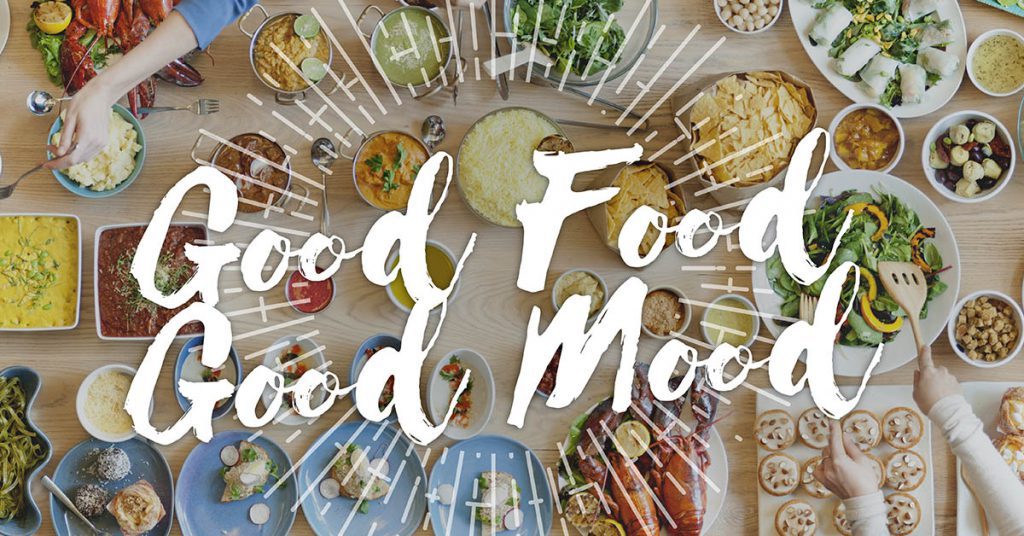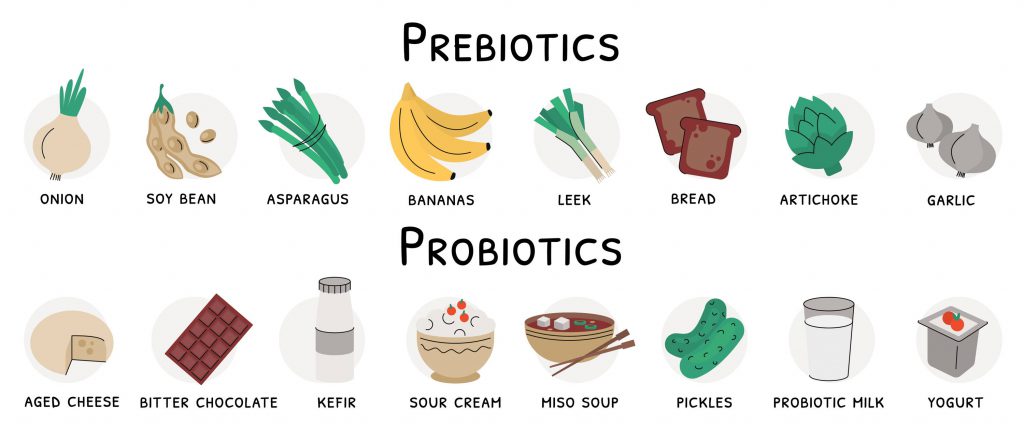Did you know, that while there are 15 trillion human cells on average in a human body, there are an estimated 100 to 300 trillion bacteria symbiotically residing in a human gut? And here’s more, these bacteria actually regulate not just your digestive system, nutrition, and physical well-being, but also influence your mood and mental health as well. Intrigued? Read on to know how the gut microbiota and brain are related, and how you could use your diet to improve mental health.
That Connection between the Gut & Brain
The human gut and brain are connected by a nerve that belongs to the autonomic nervous system (involuntary part of the nervous system that controls actions like breathing, heart rate, and swallowing) called the vagus nerve. This nerve enables both the gut and brain to communicate with each other about hunger, appetite, digestion stress and other related functions. For this reason, usually when we are stressed, stress signals are communicated from our brain, and our digestion in the gut is affected; it is also vice versa – when we have digestion-related problems, we feel unhappy and uncomfortable.
Having Good LinkedIn Helps You Get Hired Faster
Food & Mood – How the things you eat influence your mood
Gut microbiota is the diverse set of various kinds of microorganisms like bacteria, yeast, and fungi residing in the intestine or gut. They provide us benefits through a symbiotic relationship (an association between two completely different organisms) by their capacity to digest a variety of food compounds which cannot be digested by human beings as such. Food we eat is converted into short-chain fatty acids (SFCAs) by gut microbes.
What’s more, these SFCAs communicate with brain cells, regulating anxiety and happiness levels. For example, butyrate, an important essential fatty acid produced by gut bacteria, helps in strength and keeps the gut lining intact. It also contributes to growing new brain cells, and helps in preventing inflammation in the gut due to dysbiosis (higher, imbalanced levels of the opportunistic microbes that potentially cause disease and further complications). Studies have shown gut inflammation and depression have been found to be causative factors of each other.

SFCAs also communicate with the brain to produce neurotransmitters (small molecules that help brain cells communicate) like serotonin and gamma-aminobutyric acid (GABA). Serotonin, popularly known as the happy hormone, uplifts the mood, and gives us a feeling of well-being; gut microbes help in increasing serotonin production. GABA plays an important role in calming the nervous system by inhibiting stress signals; surprisingly, some gut microbes have the capacity to produce GABA themselves.
Right Skill = Bright Future
Pitching in Probiotics & Prebiotics in the Diet for Mental Health
Probiotics are live microorganisms that could be consumed to improve or restore healthy gut microbiota. Along with providing health benefits like enhanced immunity, aiding in weight loss, improving digestive functions and healthier looking skin, studies have shown some bacterial species like Lactobacillus help improve stress resilience, reduce anxiety and depression as well. Some Indian probiotic foods include traditional buttermilk, traditional curd (dahi), lassi, paneer, idli, dosa, vada, dhokla, kaanji, ragi porridge, and achaar.

Prebiotics are food compounds that help beneficial probiotic bacteria grow and populate in the gut. They might be resistant carbohydrates, fibers or polyphenols that can’t be digested by the human body. These prebiotics provide nutrition to the gut microbes, and transform them into beneficial molecules for us like vitamins and SCFAs. For these reasons, prebiotic foods have been shown to reduce symptoms of stress, depression, anxiety along with improved cognition and emotional processing. Here are some prebiotic foods that could help with improving your mood and overall mental health –
- Resistant carbohydrates – green bananas, corn, seeds, legumes, whole grains, cooked potatoes
- Fibers – Garlic, barley, onions, mushrooms, berries
- Polyphenols – Apples, soya beans, tea, onions, cocoa (dark chocolate)

More Diversity Means More Healthy
Every individual’s microbiota differs in composition and is unique. The key to maintaining not only a physical well-being but also a mental well-being is by balancing intake of probiotics and prebiotics. Studies have also shown that gut microbiota diversity is the key to better mental health, and along with a healthy diet, exercise also promotes diversity. There are now even companies that test and analyze personal microbiota, estimate butyrate production and suggest personalized diets for maintaining a healthy gut microbiota balance.
So, next time you eat something, remember, as the old saying goes, “you are what you eat” – but, those 100 trillion bacteria are the ones that decide what to make of the food, and you.







